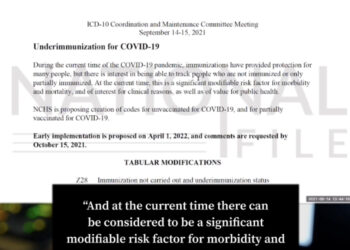Last Updated on February 17, 2022
An article published by a man named Donald Moss in the , a bi-monthly peer-reviewed scholarly publication, advances the racist – and according to critics,potentially genocidal – notion that “whiteness” is a “malignant” health ailment that can only be treated through “psychic and social-historical interventions.”
“Whiteness is a condition one first acquires and then one has—a malignant, parasitic-like condition to which ‘white’ people have a particular susceptibility,” Moss writes in the abstract of the paper, titled “On Having Whiteness.” Moss adds, “The condition is foundational, generating characteristic ways of being in one’s body, in one’s mind, and in one’s world.”
“Parasitic Whiteness renders its hosts’ appetites voracious, insatiable, and perverse. These deformed appetites particularly target nonwhite peoples,” the article continues. “Once established, these appetites are nearly impossible to eliminate. Effective treatment consists of a combination of psychic and social-historical interventions. Such interventions can reasonably aim only to reshape Whiteness’s infiltrated appetites—to reduce their intensity, redistribute their aims, and occasionally turn those aims toward the work of reparation.”
Moss concludes that “When remembered and represented, the ravages wreaked by the chronic condition can function either as warning (‘never again’) or as temptation (‘great again’). Memorialization alone, therefore, is no guarantee against regression. There is not yet a permanent cure.”
The paper’s polarizing claims have received zero coverage from corporate media, though it has drawn attention on social media this week.
Since this can't last forever, there will be a truth and reconciliation commission about this genocidal rhetoric
The name of the author, Donald Moss, will not be forgotten.
Nor will this be forgiven. https://t.co/XPnI0R4RUk
— Darren J. Beattie 🌐 (@DarrenJBeattie) June 9, 2021
Other articles written by Moss for On Hating in the First Person Plural: Thinking Psychoanalytically About Racism, Homophobia, and Misogyny,” “On Situating Homophobia,” and “Masculinity As Masquerade.”





















